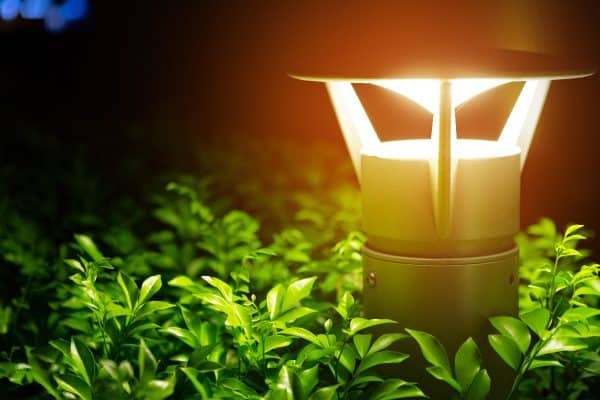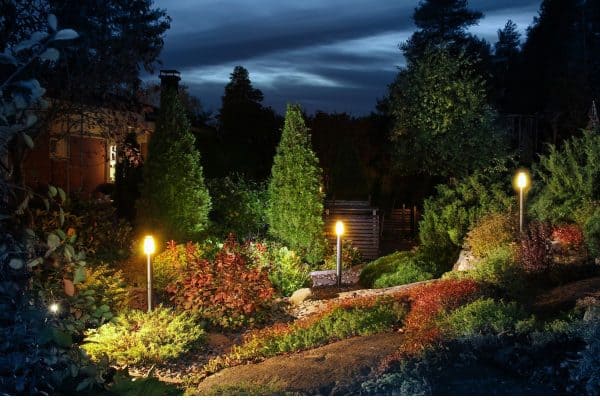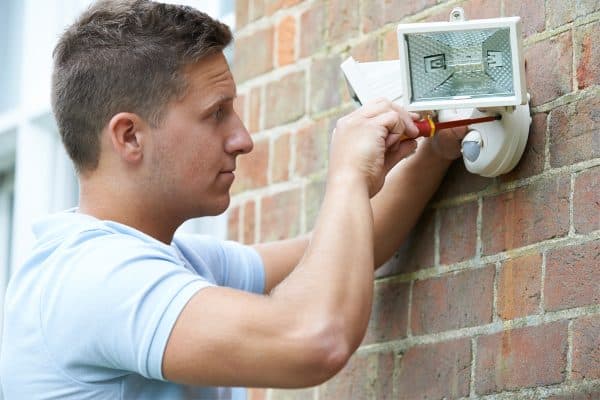Cold weather and solar lights don't seem to go well together, right? You're right in thinking that solar lights need the sun and we don't usually get a lot of that during winter. But how does cold weather affect your solar lights? That's what we asked the experts and here's what we got from them.
Cold weather won't affect your solar lights as long as they are rated for outdoor use, made of high-quality materials, and have an IP65 rating. These are built to last despite harsh weather conditions including snow and rain.
Keep on reading to know more about how solar lights are affected by cold weather and if you need to bring them inside during winter. We'll also give you tips on how to store your solar lights during the winter. We'll also tell you how solar lights work and if they need direct sunlight to charge. Let's begin!
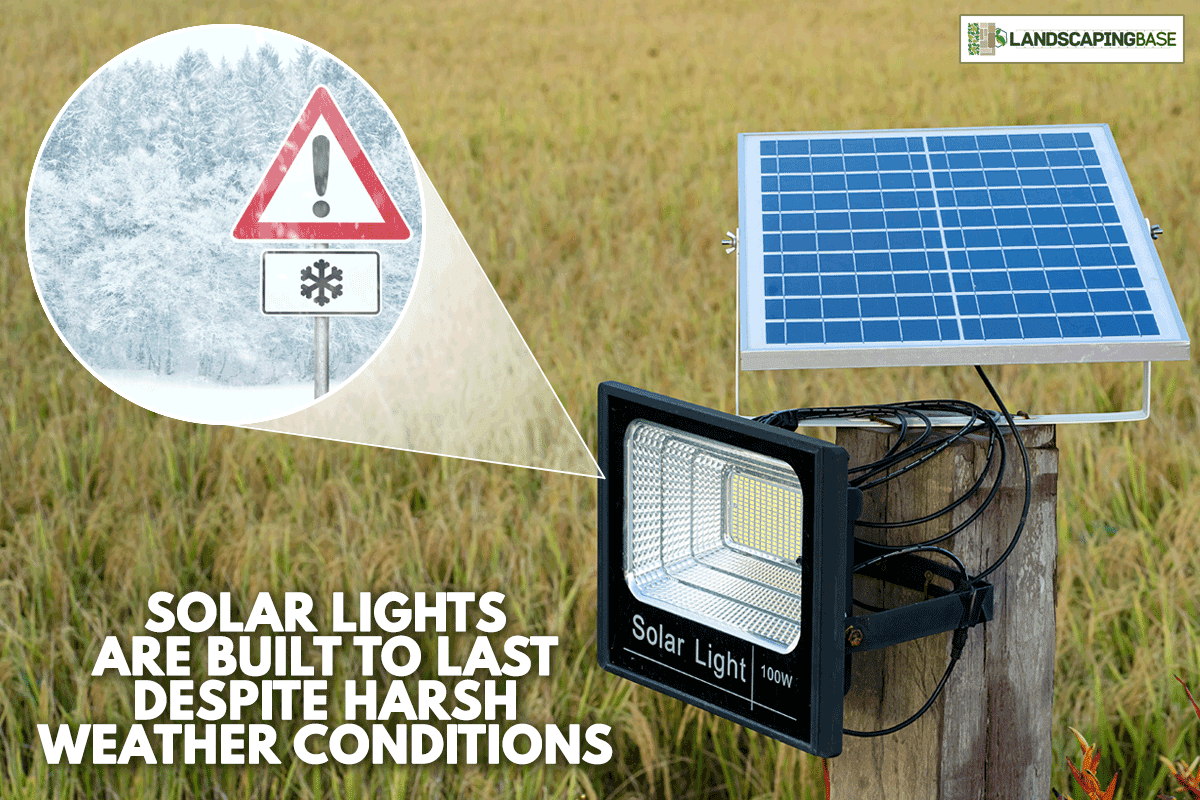
Do solar lights work in winter?
We all know the benefits of solar lights from being environment-friendly to helping you cut your energy costs, and providing light for those who are off the grid and those affected by power disruptions due to severe weather conditions.
Also, many residential homes put up solar lights in their gardens or outdoor space to help brighten the area at night. They also help a lot in preventing accidents and keeping your house safe and secure.
Somehow it is hard to picture solar-powered lights functioning well during winter when we don't get too much sunlight. Worse, there's snow that could pile up and possibly affect the lights' overall quality.

But manufacturers of some solar lights are quick to assure interested buyers that their equipment still functions well during the winter. High-quality solar lights have been designed to endure freezing temperatures. They won't warp easily during extreme weather conditions.
You can also check the particular product's IP (Ingress Protection) rating to see how well it is protected against intrusion of water (when the snow melts), as well as dirt and dust in the surroundings. This will let you know the quality of the product so you can manage your expectations.
Solar lights with an IP65 rating should do well even in winter as they won't let dust in and only a limited amount of water from the melted snow can get inside the lights if at all.
Also, with high-quality solar lights, you can be sure that their sensitive components are well-protected so the snow and water won't significantly affect their performance during winter.
Check out these outdoor solar lights rated IP65 on Amazon.
But take note that the operative word here is high-quality. Choose a trusted brand that makes excellent products. You can also read the customer reviews so that you can learn from the experiences of people who've bought and used the products.
This will help you choose and invest in durable and reliable solar lights that won't be affected at all by cold weather. Instead, they will continue to provide you light amidst extreme weather conditions.
Should solar lights be brought in for winter?
Winter can be harsh on some appliances. The snow can pile up over your solar lights and once they melt, water can get inside their internal components and affect their functionality. However, some appliances are built for outdoor use. This means that they can endure changing weather and various environmental conditions.
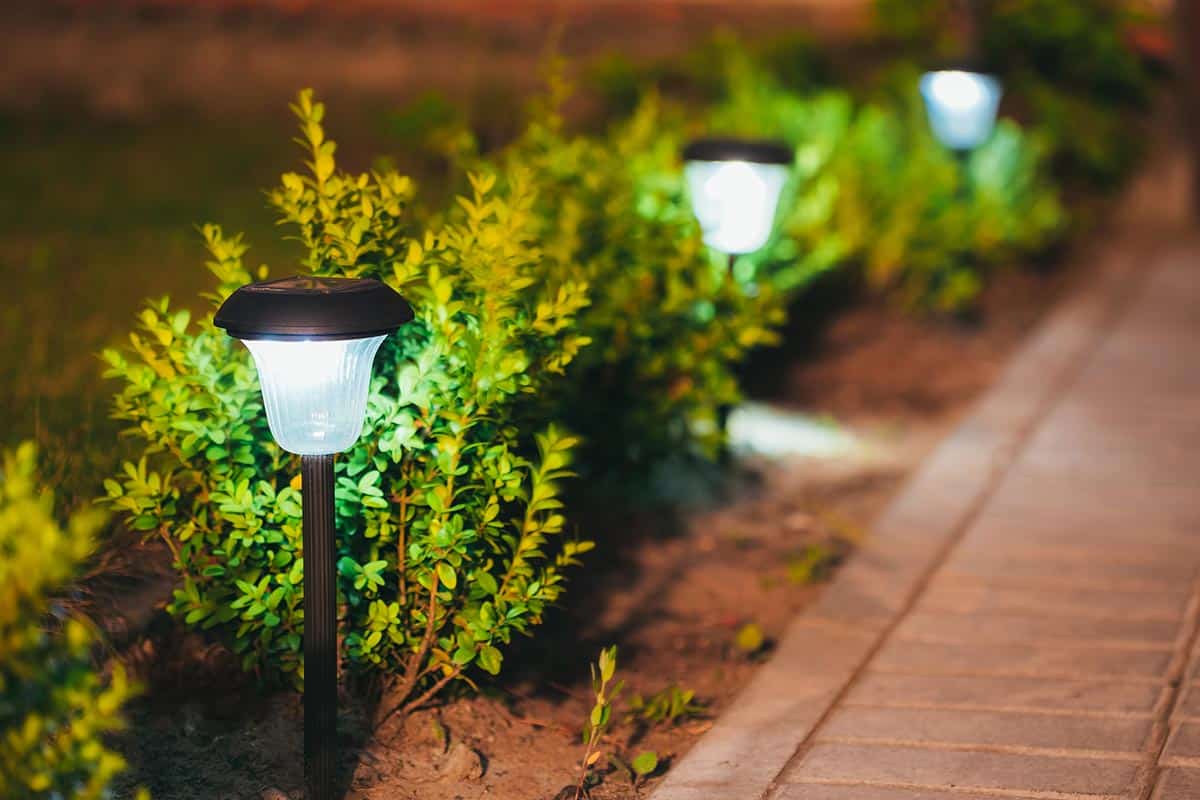
The answer to the question above is that it depends. You need to read the product description and customer reviews to know how the solar lights will perform during winter. Check if the products are rated for indoor or outdoor use. Of course, solar lights are an investment and you wouldn't want them to get damaged during freezing weather. It is important to know how to protect them from different environmental factors.
If it says that the product is not built for extreme weather, then it's best to bring it inside during winter. This is especially true for solar lights that are meant for decorative purposes only.
Meanwhile, there are solar lights that are built with good quality and are specifically made for outdoor use. These products can endure winter conditions so they can be left outside even during winter.
How to Store Outdoor Solar Lights During Winter
Remember, you're storing your solar lights so that you can use them again once winter is over. So, you need to store them properly so that they are well-protected and ready for use when the right time comes.
Here are a few tips on how to keep your outdoor solar lights.
- Remove the outdoor solar lights from their location and put them in the "Off" position.
- Take off the batteries if they have any.
- Clean the solar lights thoroughly according to the manufacturer's instructions.
- Cover the lights and batteries with packing paper or bubble wrap before you put them inside a box or plastic lid.
- Put a label on the storage box before you store it.
- Store the box in a cool and dry place.
Click this link to find these bubble wrap rolls on Amazon.
That's it! Follow these steps so you can be sure that your solar lights are all intact when it's time to use them again.
How do solar lights work?
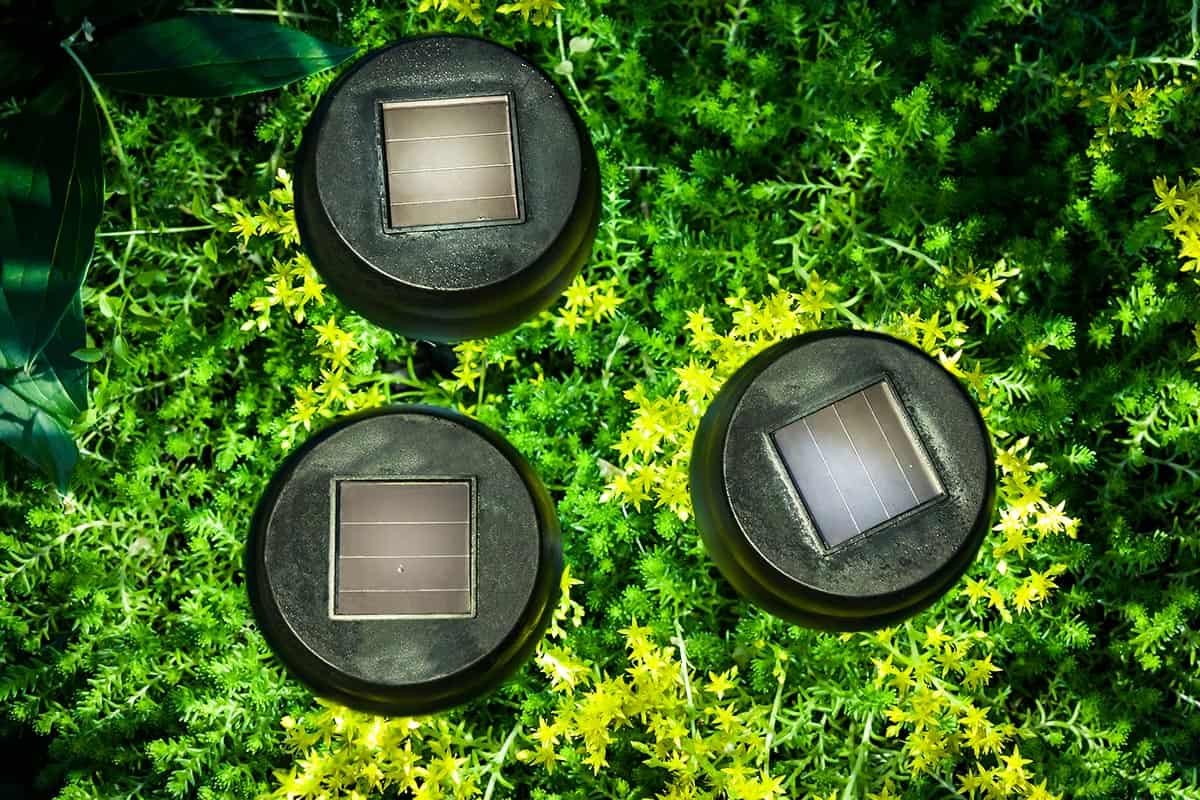
Solar lights contain solar cells that are also called photovoltaic (PV) cells. These are responsible for absorbing the energy coming from the sun and converting it into a direct electrical current.
There are wires within the system that connect the solar cells to the battery which in turn stores this energy to be used to power the LED lights when it gets dark outside. This cycle is repeated daily.
Solar lights usually make use of LEDs because they are more durable and efficient in generating light than the traditional incandescent and fluorescent light bulbs.
The diodes work great as semiconductors too. They allow electrons to pass smoothly between two points. This is needed in creating electromagnetic energy and producing light.
There are photoreceptors in the solar panel that detects light and darkness. They will activate the solar lights when they sense that it's dark and turn them off when there's light. That's how solar lights work. Solar lights would be automatically turned off during the day or when the batteries run out of power.
Do outdoor solar lights need direct sunlight?
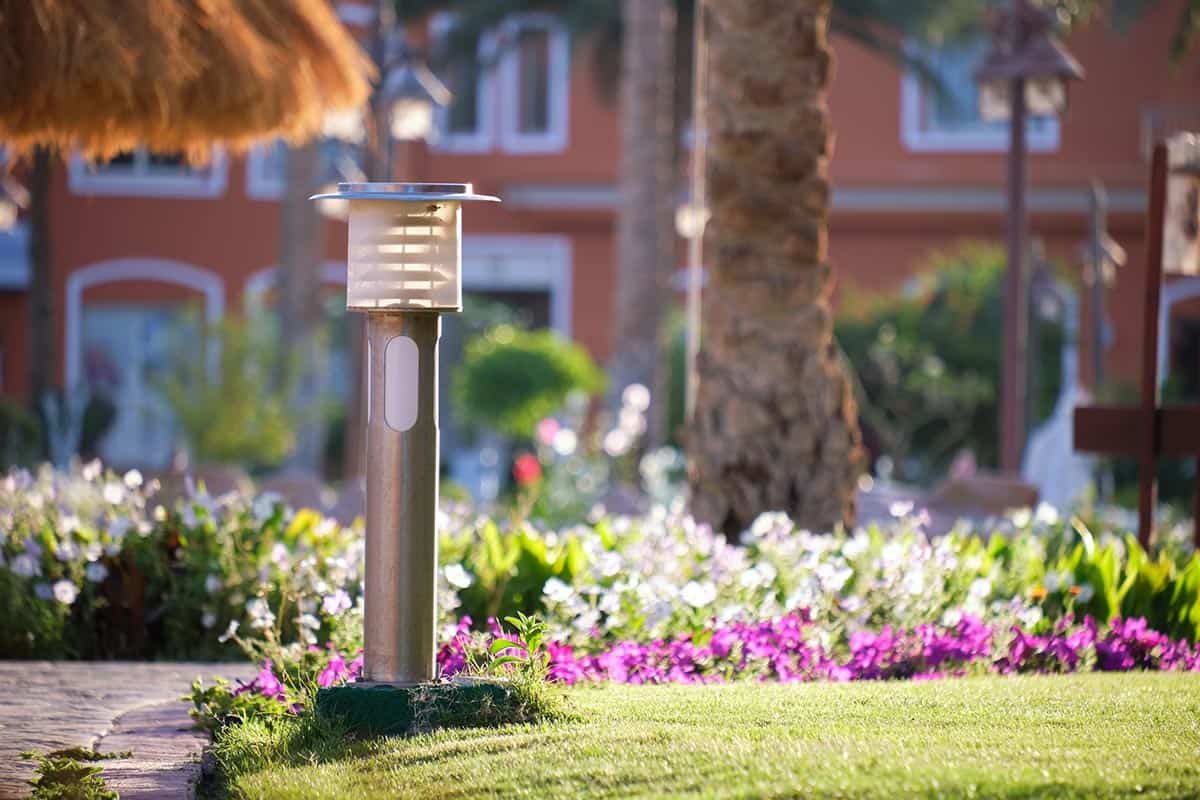
As mentioned above, solar lights have solar cells that harness the sun's energy and convert it into electrical energy. Simply put, the more sunlight they receive, the more power they'll have.
This shouldn't be a problem during the summer when there's plenty of sunlight for a longer period.
It is also advised that you trim off the tree branches or shrubs that could block the light coming from the sun. Direct sunlight is best for charging your solar lights. It will less time to charge the batteries.
However, don't fret too much because you can still recharge your solar lights even when there's limited sunlight. Experts recommend that you clean your solar panels thoroughly so that no marks, dust, dirt, and other particles can get in the way of their absorption of light.
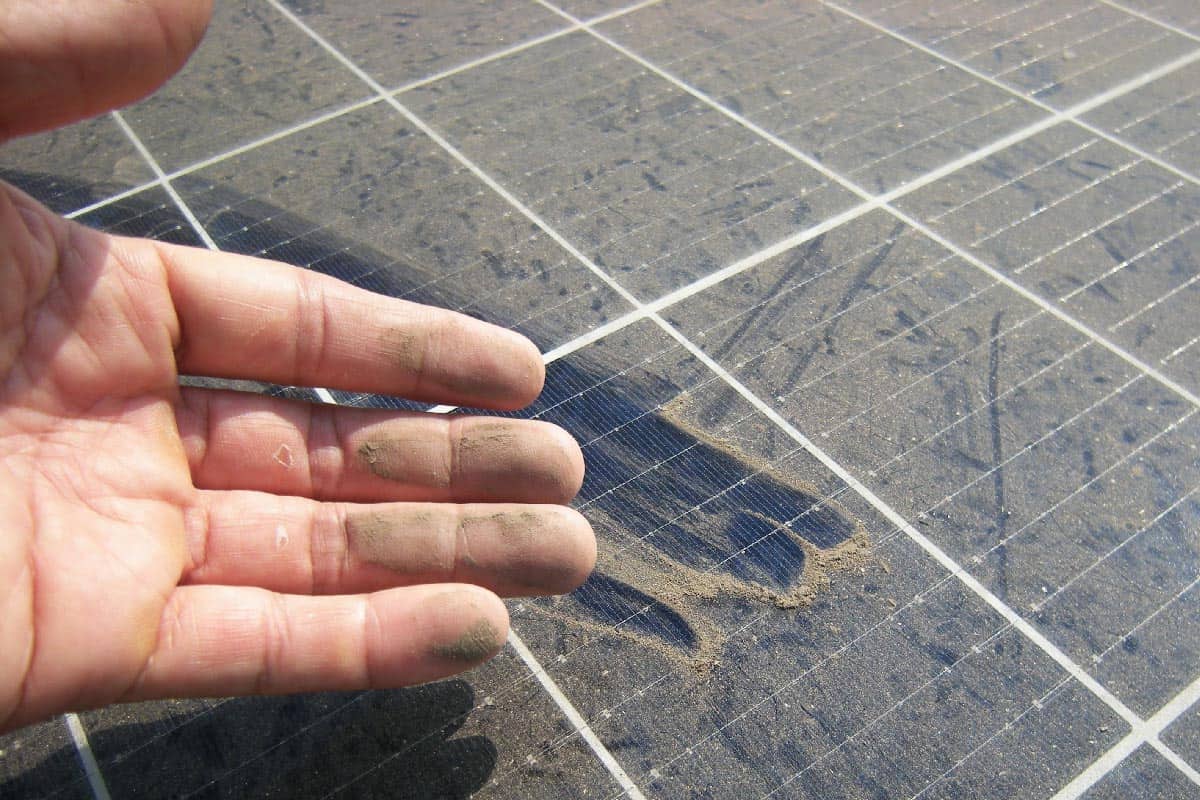
You should also observe where the sun's rays are directed so that you can angle the solar panels toward that direction. If you cannot reposition the solar panels, you can try putting mirrors so that they can reflect the sun's rays on the panels. The bigger the mirror, the better.
If there's no sunlight at all, you can use artificial lights such as incandescent bulbs or LED flashlights that you have at home to charge your solar panels. The solar cells would still be able to absorb the energy coming from these lights. It's best to place the artificial lights as close to the solar cells as possible for the charging to be more efficient.
Final Thoughts
High-quality solar lights will continue to be a dependable source of light despite the cold weather. They are built to outlast extreme weather conditions, even the freezing cold of winter, to be able to provide you with light when you need it the most.



